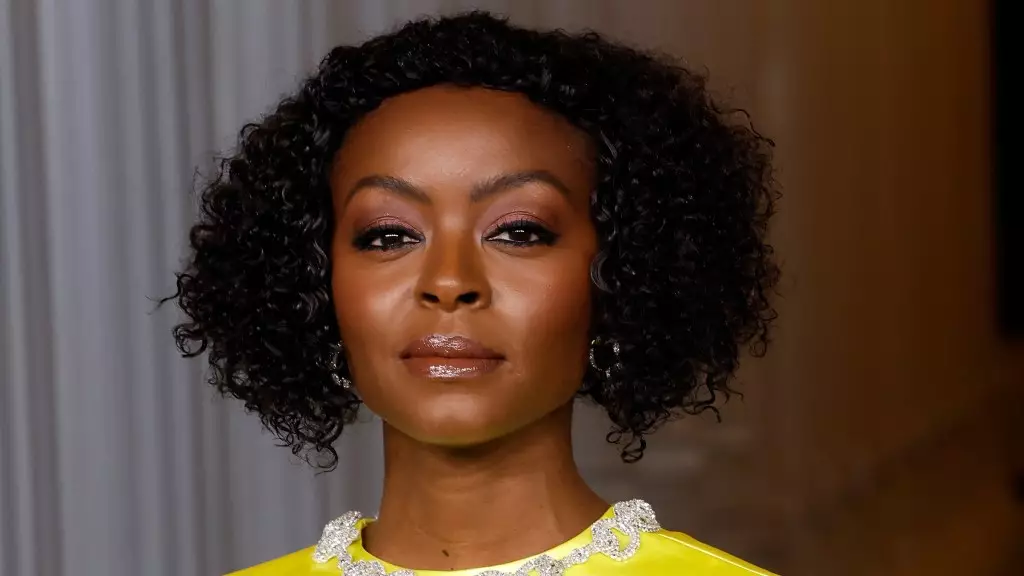Danielle Deadwyler’s recent remarks about her evolving relationship with the Oscars, particularly following her performance in “Till,” illuminate a broader discourse about recognition and representation in the film industry. After experiencing what many viewed as a significant snub during the 2022 Academy Awards, Deadwyler has adopted a more relaxed approach regarding the accolades that often dominate the awards season narrative. Her transformation exemplifies a necessary shift in focus—from personal recognition to a communal appreciation of the creative process. She stated, “I’ve always known what has always been most valuable, which is people, what is going on with people, what is going on with culture.” This analysis places the emphasis on the collective nature of art, suggesting that the driving force behind her work is less about trophies and more about connecting with others through storytelling.
The 2022 awards season was marred by controversy, particularly concerning the exclusion of prominent Black women from key categories. Deadwyler’s experience during this tumultuous period reflects a broader issue of inequity in representation. She acknowledged the “abject nature of Blackness” that compounds the struggle for recognition. Commenting on the sudden rise of Andrea Riseborough’s nomination, Deadwyler hinted at an unsettling reality where some are prioritized over others, raising questions about the equity granted to diverse voices within the industry. The snubbing of talented Black actresses like Viola Davis and Gina Prince-Bythewood prompted Deadwyler to challenge the systemic barriers that continue to sideline marginalized communities. Her reflections serve as a call to action for equality in an industry that has historically favored certain narratives and demographics.
In her recent profile with the Los Angeles Times, Deadwyler asserted the importance of collaboration. She underscored that the value of filmmaking lies not in singular recognition, but rather in the ensemble performance—an ethos encapsulated in her upcoming project, “The Piano Lesson.” This film adaptation of August Wilson’s Pulitzer Prize-winning play marks a significant contribution to the portrayal of the Black experience. The narrative centers on complex family dynamics and the weight of heritage, exploring themes that resonate deeply with audiences. Deadwyler’s portrayal of Berniece invites viewers to unpack not just personal viewpoints but also collective history, thereby enriching the cultural tapestry of cinema.
Set to debut on Netflix following a limited theatrical release, “The Piano Lesson” is part of Wilson’s Century Cycle, a series that delves into various dimensions of African American life across different decades. By showcasing stories that reflect the varied experiences of Black individuals, the film adds crucial layers to the cultural dialogue surrounding race and identity. As Deadwyler puts it, the film is not solely a vehicle for personal acclaim; it is indicative of the wider community’s experience. This artistic dedication encourages audiences to appreciate the narratives that have often remained in the shadows, advocating for a future where such stories are front and center.
Deadwyler’s perspective pushes for a re-examination of how recognition is conceptualized in Hollywood. As she highlighted, a vital step toward achieving equity involves questioning the structures that govern acknowledgment in the industry. If awards are a reflection of societal values, there remains a pressing need for those values to evolve not just to include diverse artists but to fully engage with their narratives. This inquiry extends beyond awards; it questions the parameters that dictate who is visible and who remains invisible, ultimately shaping the path toward a more inclusive cinematic landscape.
As Deadwyler continues her work, her insights remind us of the importance of elevating voices that have historically been marginalized within the film community. Her narrative is a testament to resilience, the power of collaboration, and the pursuit of equity in representation. By choosing to focus on the essence of storytelling rather than the pursuit of accolades, Deadwyler paves the way for a transformative dialogue about art and identity. In an industry that is gradually awakening to the profound effects of representation, her journey serves as a compelling narrative for future generations of artists and storytellers.

Leave a Reply